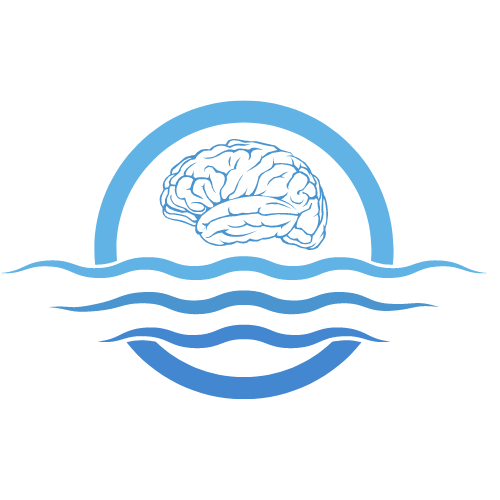Navigating the World of B.Sc. Computer Science Subjects
Are you ready to explore the fascinating world of computer science? Choosing a Bachelor of Science (B.Sc.) degree in Computer Science opens up a world of opportunities. But what exactly does this course entail, and what subjects will you be studying? In this blog, we’ll guide you through the core subjects typically covered in a B.Sc. Computer Science program, helping you understand what to expect and how this degree can shape your future career.
Introduction to Computer Science
Computer Science is not just about coding and programming. It’s a vast field that encompasses the study of computers, algorithmic processes, and the principles behind them. In a B.Sc. Computer Science program, you’ll begin with an introduction to the fundamental concepts of computing. This includes understanding the architecture of computers, the basics of programming languages, and the role of algorithms in solving complex problems.
Throughout this course, you’ll learn to think critically and solve problems efficiently, skills that are invaluable in today’s tech-driven world. The subject will also introduce you to the historical evolution of computers and how technological advancements have shaped modern society.
Programming Fundamentals
One of the first subjects you’ll encounter is Programming Fundamentals. This subject lays the groundwork for all future programming courses. You’ll start by learning basic programming concepts like variables, data types, and control structures. These are essential building blocks that will allow you to write simple programs and develop logical thinking.
Programming languages such as Python, C++, and Java are typically introduced at this stage. Mastering these languages is crucial as they are widely used in the industry. By the end of this course, you’ll be able to write and debug code, a skill that’s highly sought after in the tech world.
Data Structures and Algorithms
Data Structures and Algorithms form the backbone of computer science. In this subject, you’ll learn how to organize and store data efficiently. This includes understanding different data structures like arrays, linked lists, stacks, queues, and trees.
Algorithms are step-by-step procedures for solving problems. You’ll study various algorithms, learning how to analyze their efficiency and optimize them for better performance. This subject is vital for developing efficient software and plays a significant role in job interviews for tech positions.
Database Management Systems
In today’s data-driven world, understanding Database Management Systems (DBMS) is crucial. In this subject, you’ll explore how databases are designed, implemented, and managed. You’ll learn about database models, SQL (Structured Query Language), and how to perform data manipulation and querying.
DBMS is essential for anyone looking to work in data management, software development, or information systems. By mastering this subject, you’ll become adept at handling and organizing large sets of data, a skill that’s in high demand in various industries.
Operating Systems
Operating Systems (OS) are the backbone of any computer system. In this course, you’ll learn how operating systems function and manage computer hardware and software resources. Topics covered include process management, memory management, file systems, and security.
Understanding operating systems is crucial for anyone interested in software development or system administration. This subject will provide you with insights into how your computer works, enabling you to optimize performance and troubleshoot issues effectively.
Computer Networks
Computer Networks is a subject that introduces you to the world of data communication. You’ll learn about the architecture, protocols, and standards that allow computers to communicate over networks. Topics include network layers, TCP/IP protocols, and network security.
With the increasing importance of the internet and digital communication, expertise in computer networks is highly valuable. Whether you’re interested in network administration, cybersecurity, or software development, this subject provides a solid foundation for a successful career.
Software Engineering
Software Engineering focuses on the principles and practices of software development. You’ll learn about the software development lifecycle, project management, and software testing. This subject emphasizes teamwork and communication skills, which are essential for successful software projects.
By the end of this course, you’ll have the skills needed to design, develop, and maintain software systems. Software engineering is a critical component of any tech career, providing you with the tools to create high-quality software solutions.
Web Technologies
In the digital age, web technologies are indispensable. This subject covers the basics of web development, including HTML, CSS, and JavaScript. You’ll learn how to create interactive and responsive web pages, as well as the principles of web design and user experience.
Web technologies are essential for anyone interested in web development, digital marketing, or e-commerce. By mastering these skills, you’ll be able to create engaging online experiences and contribute to the growing field of web innovation.
Artificial Intelligence and Machine Learning
Artificial Intelligence (AI) and Machine Learning (ML) are among the most exciting and rapidly growing fields in computer science. This subject introduces you to the basics of AI and ML, exploring topics like neural networks, decision trees, and natural language processing.
AI and ML have applications in various industries, from healthcare to finance. By understanding these technologies, you’ll be prepared to tackle complex problems and create innovative solutions that drive future advancements.
Conclusion
A B.Sc. in Computer Science offers a comprehensive education in key subjects that form the foundation of modern technology. From programming and algorithms to databases and artificial intelligence, you’ll gain valuable skills that open doors to exciting career opportunities. Whether you aspire to be a software developer, data scientist, or network engineer, this degree equips you with the knowledge and expertise needed to thrive in the tech industry.
By exploring these subjects and understanding their real-world applications, you’ll be well-prepared to make a meaningful impact in the world of computer science. If you’re ready to take the next step in your career, consider enrolling in a B.Sc. Computer Science program and start your journey towards a bright future in technology.
